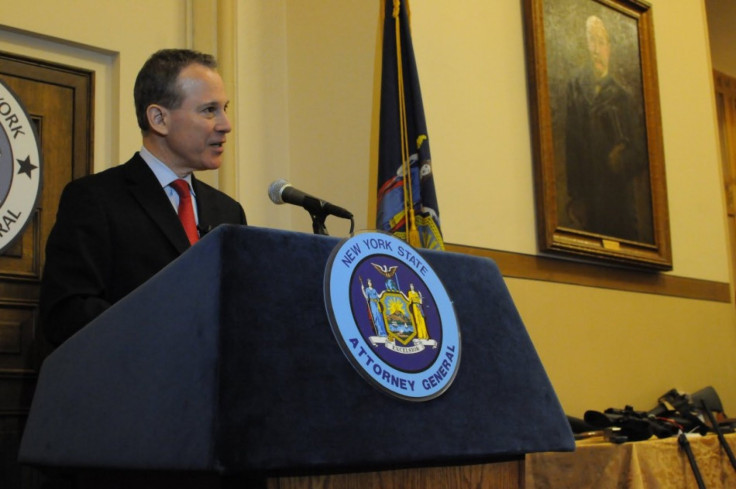SOTU 2012: Chief Foreclosure Deal Critic Tapped as National Mortgage Czar

President Barack Obama announced during his State of the Union address a new Department of Justice unit that will investigate abusive lending practices and the packaging of risky mortgages into securities.
The White House tapped New York Attorney General Eric Schneiderman, a first-term Democrat, to co-chair a unit within the president's Financial Fraud Enforcement Task Force. The new unit aims to probe the misconduct and illegal behavior that led to the mortgage crisis and financial collapse of 2008 and beyond.
"This new unit will hold accountable those who broke the law, speed assistance to homeowners, and help turn the page on an era of recklessness that hurt so many Americans," Obama said.
In tapping Schneiderman, the Obama administration is bringing into the fold the chief critic of a proposed nationwide settlement among state attorneys general, federal officials and the nation's largest mortgage servicers over improper foreclosure practices, like robo-signing documents.
Schneiderman, a former state senator elected attorney general in 2010, has become one of the nation's more high-profile progressive officials, mainly for his role in opposing bank immunity as part of a settlement over foreclosure practices. The White House, much to the chagrin of the president's liberal base, had been reportedly determined to get a deal with the mortgage servicers so homeowners could start receiving relief, which could include payments.
Bank Immunity
A major sticking point for Schneiderman and other attorneys general such as California's Kamala Harris and Delaware's Beau Biden (son of the vice president) is giving banks immunity from certain claims relating to the financial meltdown that have yet to be fully investigated. As Schneiderman explained in November, "[mortgage] servicing abuses did not create the mortgage bubble. Robo-signing did not blow up the U.S. economy."
Diane Thompson, a lawyer with the National Consumer Law Center, called the threat of a deal giving banks blanket immunity for the financial collapse "overblown."
"I think the creation of the special task force ... makes that clear," she said in an interview.
Huffington Post, which first reported Schneiderman's appointment, said the unit would not "supersede" the Justice Department's investigation efforts. Schneiderman will co-chair the unit with two top Justice Department officials: Robert Khuzami, the Securities and Exchange Commission's enforcement chief, and John Walsh, a U.S. attorney in Colorado.
"Our office will continue its steadfast commitment to holding those responsible for the economic crisis accountable, providing meaningful relief for homeowners commensurate with the scale of the misconduct and getting our economy moving again," Schneiderman said in a statement Tuesday.
Settlement Talks Continue
On Monday, representatives for Democratic attorneys general met in a Chicago hotel to discuss a potential $25 billion deal with five major banks that service mortgages -- Bank of America, JPMorgan Chase & Co., Citigroup, Wells Fargo and Ally Financial. Iowa Attorney General Tom Miller, who is leading the negotiations, said there will be no final agreement this week, Bloomberg reported.
The deal would reportedly provide money toward lowering the principal on homeowners' mortgages, providing relief to victims of abusive practices and refinancing loans.
The Center for Responsible Lending, a nonprofit consumer group, said Monday the potential settlement could offer relief for homeowners and fix banks' servicing practices, while holding banks accountable.
Banks could still be open to criminal prosecutions, lawsuits from homeowners, and claims based on mortgage securities violations and fair lending practices.
Schneiderman said Wednesday his new role will not conflict with the ongoing settlement talks, which deal with the raft of foreclosures initiated in the wake of the financial collapse.
"Our working group is focusing on the conduct related to the pooling and creation of mortgage-backed securities ... the conduct that created the crash, not the abuses that happened after the fact," Schneiderman said, the Los Angeles Times reported.
© Copyright IBTimes 2024. All rights reserved.











